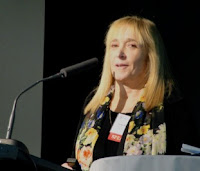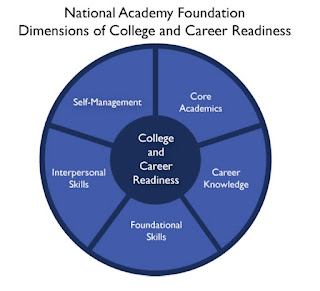By Sam Piha
 |
| Sam Piha |
There is a growing consensus that the learning principles as stated by the Learning in Afterschool & Summer project are critical features of effective learning environments. As a result, there are a growing number of resources that help practitioners go from theory to practice in designing activities that align with these learning principles. Occasionally we will attempt to identify these resources as they become available, knowing that we can't possibly keep up with every resource that is released.
Recently, Edutopia offered a set of resources focused on learning that is collaborative. While many of these resources have been developed by an elite college prep high school in the East Bay, we believe there's much that could be mined that would help afterschool practitioners as well. These resources can be found here.
Samantha Tran of Children Now and a member of our LIAS Work Group, recommended a publication entitled Work-Based Learning in Linked Learning: Definitions, Outcomes, and Quality Criteria, which defines work-based learning as a continuum of work-based learning experiences that stretches from kindergarten into adulthood. Stated most simply, the stages of work-based learning can be described as: Learning ABOUT work; Learning THROUGH work; Learning FOR work. This approach aligns well with learning that is active, meaningful, supports mastery, and expands horizons.
Samantha also recommended Guide to Work-Based Learning: A Continuum of Activities and Experience. This resource was developed by the National Academy Foundation (NAF). They write, "After extensive discussions with business and post-secondary leaders, partner organizations and digesting the still growing policy and research literature on this topic, NAF has settled on a definition of college and career readiness to guide its efforts to help students pursue their career and life goals. Utilizing this definition, NAF has aligned its work-based learning activities and outcomes with our curriculum and recommended programs of study to ensure students are prepared to demonstrate the skills and attributes necessary to be college and career ready." This publication would be most useful to those serving older youth, grades 9 - 12.
 Another important and useful resource is a webinar sponsored by ASCD entitled Ask Dr Judy: The Essential Neuroscience of Learning. Copies of the PowerPoint slides are available here and here as handouts.
Another important and useful resource is a webinar sponsored by ASCD entitled Ask Dr Judy: The Essential Neuroscience of Learning. Copies of the PowerPoint slides are available here and here as handouts. And check out this radio podcast of This American Life program entitled Back to School. It offers conversations with Paul Tough, James Heckman, and others on issues that effect and promote or deter learning.
And check out this radio podcast of This American Life program entitled Back to School. It offers conversations with Paul Tough, James Heckman, and others on issues that effect and promote or deter learning. 





No comments:
Post a Comment